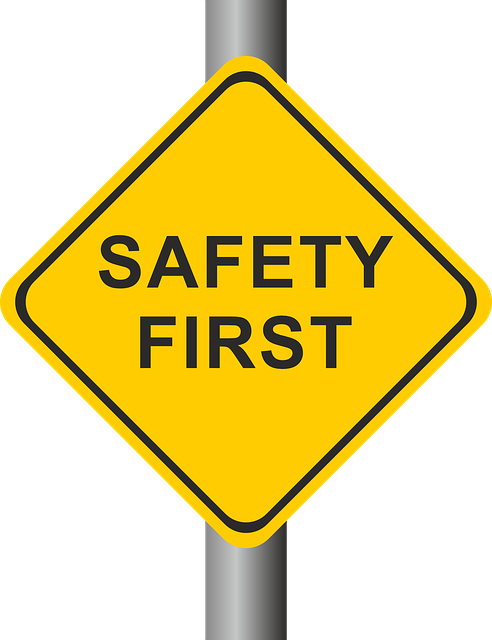The transportation industry prioritizes passenger safety through comprehensive background checks on drivers and operators. These include screenings for identity, criminal history, drug use, and traffic violations, ensuring suitable individuals operate vehicles. Such checks identify threats, prevent accidents, and maintain industry standards. Driver background screening and commercial driver verification are key to fostering safety, minimizing risks, and enhancing public trust. Regular transportation safety checks ensure compliance with regulations, promoting a culture of responsibility for secure travel experiences.
In today’s world, ensuring passenger safety through rigorous transportation background checks is paramount. As the transportation industry continues to evolve, so do the risks associated with it. This article delves into the critical aspect of passenger and public safety by exploring various types of background checks essential for the transport sector. From understanding the need for driver verification to implementing effective screening processes, we uncover strategies to enhance security while navigating regulatory compliance in the transportation industry.
- Understanding the Need for Transportation Background Checks
- Types of Background Checks in the Transportation Industry
- The Role of Driver Verification in Passenger Safety
- Implementing Effective Passenger Safety Background Checks
- Ensuring Compliance and Regulatory Adherence
- Benefits and Challenges of Transportation Safety Screening
Understanding the Need for Transportation Background Checks

In today’s world, where security is a paramount concern, the transportation industry faces unique challenges in ensuring passenger safety. Background checks play a pivotal role in mitigating risks associated with vehicle operations and protecting innocent lives on the road. Transportation background checks, specifically designed for drivers and operators, are essential tools to verify their identity, criminal history, and suitability for handling vehicles carrying passengers. These checks are particularly crucial in the commercial driver verification process, as they help identify potential threats or hazards that could compromise both passenger safety and transportation industry compliance.
The need for comprehensive background screening is driven by the desire to prevent individuals with dangerous pasts from operating vehicles. Passenger safety background checks encompass a thorough examination of an individual’s history, including criminal records, drug usage, and any relevant traffic violations. By implementing these checks, transportation companies can foster a culture of safety, reduce the risk of accidents, and ensure that their vehicle operators meet the highest standards required to protect passengers during transit. This proactive approach is a game-changer in the transportation industry, enabling better control and oversight over those entrusted with the responsibility of ferrying people from one place to another.
Types of Background Checks in the Transportation Industry

In the transportation industry, ensuring passenger safety is paramount, and this begins with comprehensive background checks on drivers and vehicle operators. These checks, often referred to as driver background screening or commercial driver verification, play a crucial role in identifying potential risks and preventing accidents. Transportation safety checks cover various aspects, including criminal history, driving record, and any substance abuse issues. By conducting thorough passenger safety background checks, transportation companies can maintain compliance with regulatory standards and create a safer environment for all travelers.
Vehicle operator screening involves verifying the credentials, licenses, and insurance of drivers, ensuring they meet the necessary requirements to operate commercial vehicles. This process helps to weed out unqualified or unsafe operators and promotes accountability within the industry. Background checks in transportation are not just about compliance; they save lives by minimizing the risk of reckless driving, fraud, or the involvement of known dangerous individuals in sensitive roles.
The Role of Driver Verification in Passenger Safety

In the realm of transportation, ensuring passenger safety is paramount. One crucial aspect often overlooked is the verification of drivers, which forms a vital component of overall transportation safety checks. Background checks in transportation, specifically driver background screening and commercial driver verification, play an indispensable role in mitigating risks and maintaining a secure environment for all passengers. By scrutinizing a driver’s history, including their license status, past employment records, and any potential criminal or behavioral red flags, transportation industry compliance is enhanced, thereby safeguarding the well-being of those relying on these services.
Effective vehicle operator screening goes beyond meeting regulatory standards; it’s about fostering a culture of safety. Transport companies that prioritize driver verification through comprehensive background checks can anticipate and prevent potential hazards. This proactive approach not only reduces the likelihood of accidents caused by unqualified or malicious drivers but also instills public confidence in the transportation industry, ensuring passengers feel secure during their journeys.
Implementing Effective Passenger Safety Background Checks

Implementing effective passenger safety background checks is a multifaceted process that involves rigorous scrutiny of individuals involved in the transportation sector. Driver background screening plays a pivotal role in ensuring the safety of both passengers and other road users. Commercial driver verification, which includes thorough vehicle operator screening, helps identify potential risks associated with drivers’ pasts. These checks are not just about verifying identity but also uncovering any history that could impact their ability to operate vehicles safely.
Transportation safety checks extend beyond the driver’s seat to encompass all personnel interacting with passengers or operating transportation systems. This includes background investigations that uncover any criminal activities, drug abuse, or other issues that might compromise passenger safety. Ensuring transportation industry compliance is a shared responsibility among regulators, transport companies, and drivers themselves. By integrating these comprehensive background checks into standard procedures, the transportation sector can significantly enhance passenger safety and maintain public trust.
Ensuring Compliance and Regulatory Adherence

Ensuring compliance with regulations is a cornerstone of maintaining passenger safety in the transportation industry. Comprehensive background checks for drivers and vehicle operators are essential tools to achieve this goal. These screenings go beyond basic qualifications, delving into an individual’s history to identify potential risks or red flags. By implementing rigorous driver background screening processes, transportation companies can verify the integrity and suitability of their workforce. This includes checking for criminal records, substance abuse issues, and any previous violations or accidents that could compromise safety.
Regulatory adherence is not a one-time task but an ongoing process. Transportation industry compliance requires staying up-to-date with evolving laws and standards. Regular transportation safety checks ensure that operators remain fit to drive and adhere to the highest safety protocols. This proactive approach to passenger safety background checks fosters a culture of responsibility and accountability, ultimately contributing to a smoother and safer travel experience.
Benefits and Challenges of Transportation Safety Screening

Transportation background checks, including driver background screening and commercial driver verification, offer significant benefits for passenger safety and transportation industry compliance. By conducting thorough transportation safety checks, operators can identify potential risks associated with vehicle operators, such as criminal records or substance abuse issues. This proactive approach ensures that only safe and reliable drivers operate vehicles, thereby enhancing overall passenger safety during their journeys.
Despite these advantages, implementing passenger safety background checks comes with challenges. These include the time and resource-intensive nature of screening processes, especially when dealing with large fleets or frequent driver turnover. Additionally, keeping up with ever-changing regulations can be complex, as different jurisdictions have varying requirements for transportation industry compliance. Balancing the need for rigorous safety standards and operational efficiency remains a critical aspect in safeguarding passengers without unduly burdening transport businesses.














